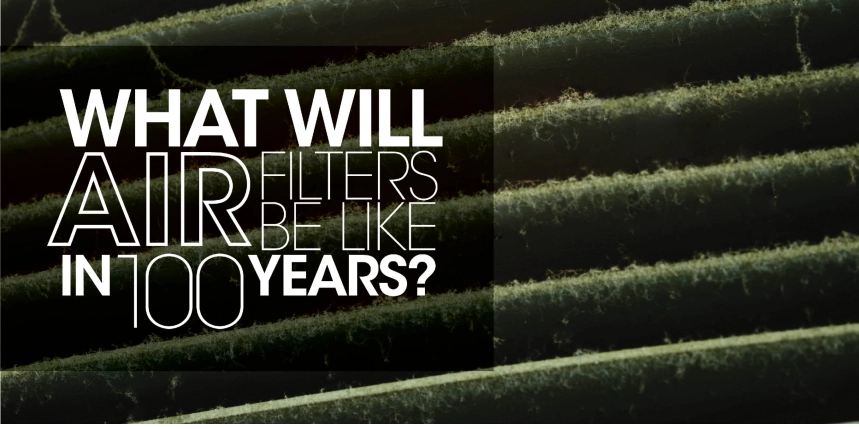What Will Air Filters Be Like in 100 Years?

Technological advancements occur so rapidly today; it’s hard to imagine what the future 100 years from now could possibly hold. Will humans have colonized the moon? Will people get around in hovercars? Will illnesses be all but eradicated? Perhaps. But what will HVAC systems look like? Specifically, what will air filters be like in 100 years?
The History of Air Filters
The first concept of filtering the air before breathing it dates back to the 16th century. People had the option of wearing a mask that filtered out gases, vapors, or dust particles more or less effectively. Fast-forward to 1848. Lewis P. Haslett patented the very first official air purifier, which used moist wool and a one-way clapper valve to filter dust from the air. Then, in 1879, Hutson Hurd patented the cup-shaped mask everyone is familiar with. The 1900s brought serious changes to air filters. Instead of only relying on masks and respirators, whole HVAC system filters began being used. In fact, in the 1940s, High-Efficiency Particulate Absorption (HEPA) filters were invented to protect against radioactive chemicals used in warfare. The technology was classified until after World War II, when HEPA filters were then allowed to be used commercially and residentially. The irony is that HEPA filters originally contained asbestos. Eventually, asbestos-containing filters were abandoned for the modern alternatives: thin glass fibers and activated carbon-based materials.Air Filters of the Future
Today, air filters are underrated components of residential and commercial HVAC systems. Filtration helps improve indoor air quality and prevents dust from settling on and potentially damaging HVAC equipment. But how could they possibly change so drastically in the next 100 years that they lose their underrated status? Consider the possibilities:
- Antimicrobial treatments could succeed:Developers are currently working on effective antimicrobial treatments. Current treatments produce dramatic results in test conditions, but they only work marginally well in real-world applications. In the future, antimicrobial treatments will surely be perfected until microorganism-killing filters are commonplace.
- Filters could last longer:Currently, the norm is to replace a filter every 30 to 90 days. Undoubtedly, self-cleaning filters will become as common in 100 years as self-cleaning ovens are today. That way, no homeowner will have to conduct this menial task.
- Efficiency could skyrocket:Today, the Minimum Efficiency Reporting Value (MERV) scale ranges from 1 to 20 with HEPA filters accounting for ratings from 17 to 20. It may seem difficult to imagine a filter that can trap more than 99.999 percent of particles smaller than 0.3 microns the way a MERV 20 filter can, but these capabilities are currently only needed in buildings with radioactive or carcinogenic materials. In 100 years, though, when the hottest technologies utilize radioactive materials, these filters could be commonplace in residences.
Contact Aire Serv
Could ultra-efficient filters be the answer to colonizing the moon within the next 100 years? Are they the secret to successful hovercars? Could cleaner indoor air be the key to eradicating illnesses? Only time will tell. To learn more about installing air filters in your home to enjoy cleaner indoor air today, contact the professionals at Aire Serv®. We have over 170 franchise locations to serve customers across the US.
 Click to call
Click to call


